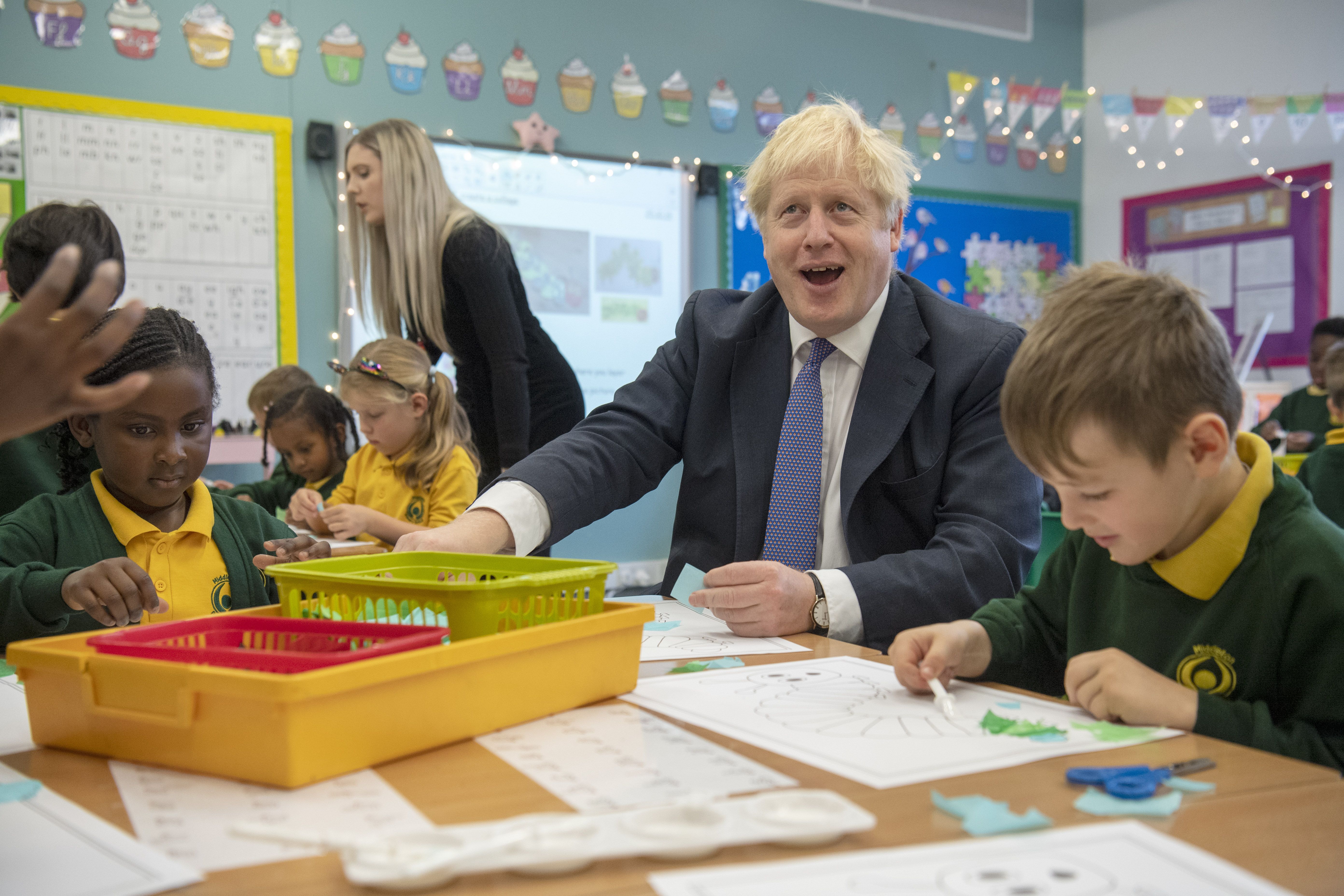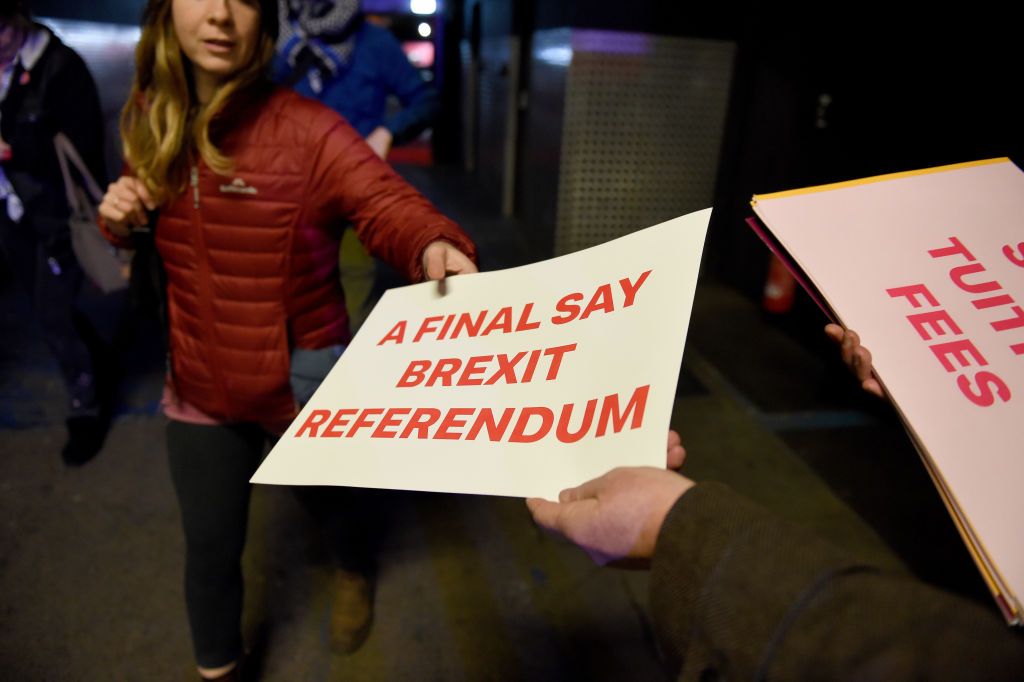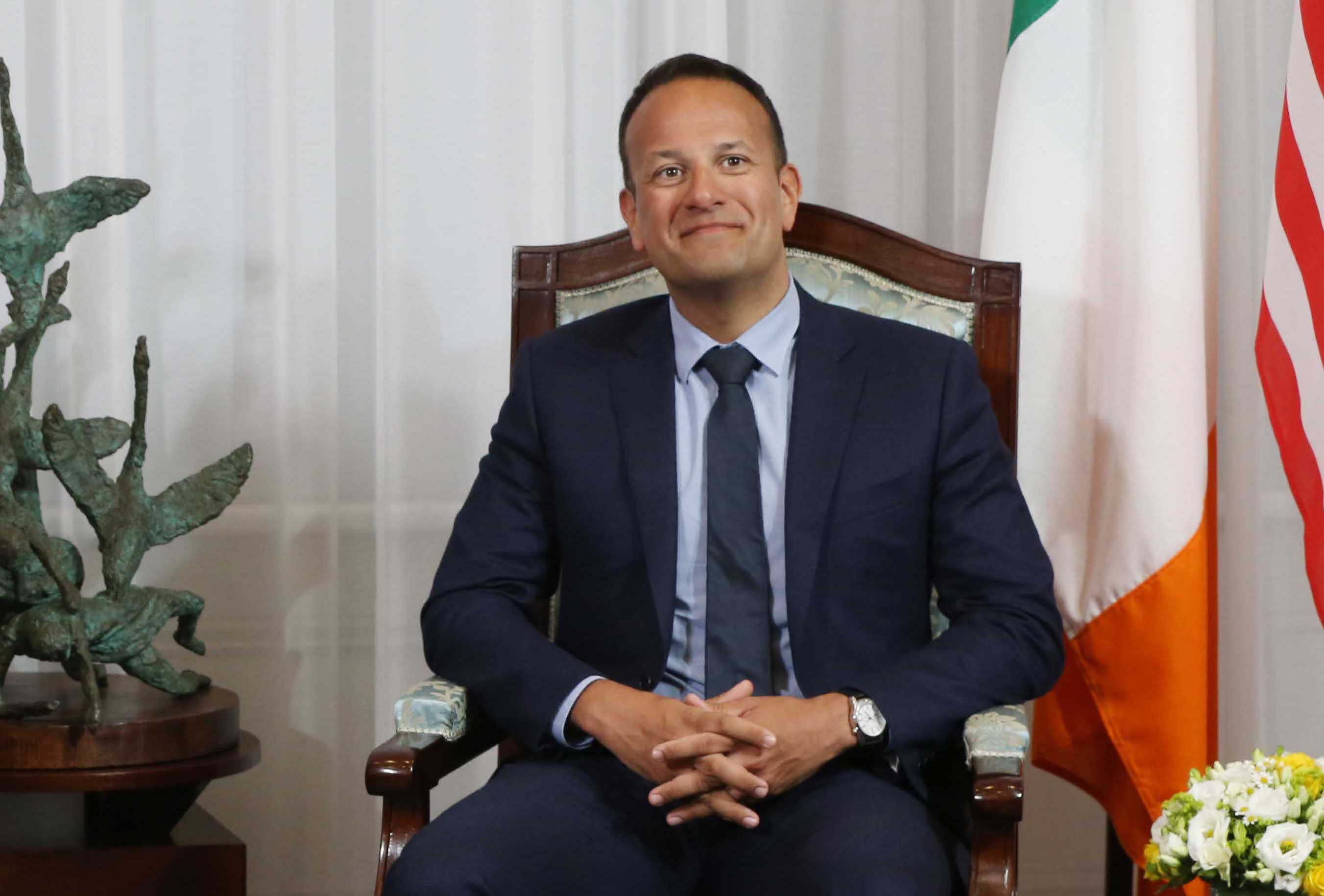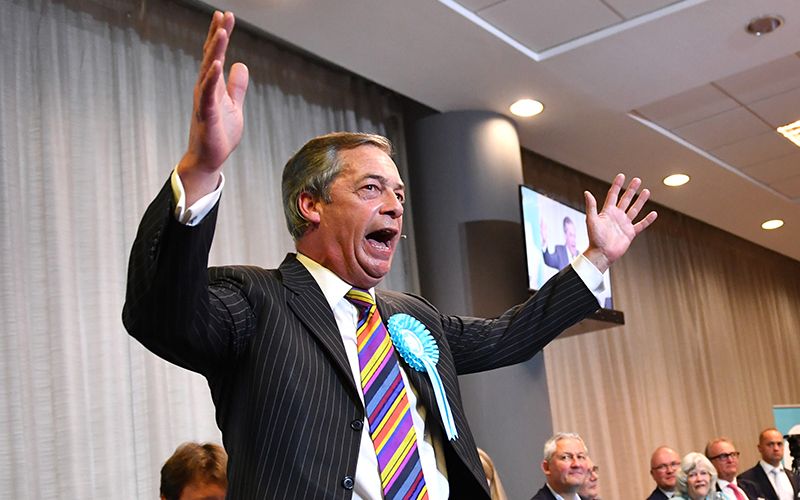The Labour Party's policy on Brexit means a win for them would be best for Ireland on Dec 12 at the Brexit elections.
The British general election is now in full swing and the two big parties, the Conservatives and Labour, have published their policy platforms.
With voting on December 12, it remains to be seen which of these fantasy manifestos -- both full of undeliverable promises -- will convince a majority of voters. But what we can say at this stage is which election outcome would be best for Ireland.
The answer to that is a Labour victory. This is not because of any of the crazy ideas put forward in the Labour manifesto, a list of crackpot policies which would drag Britain towards the kind of socialist utopia that students used to dream about 50 or 60 years ago. It involves wholesale nationalization, massive tax increases and an expansion of state spending on a scale unprecedented in British history.
Read more: Sinn Féin face exciting but uncertain future north and south as elections loom
We will come back to that in a moment. But despite Labour's lurch back to Karl Marx, the best outcome from Ireland's perspective has to be a Labour victory. The reason is simple -- their policy on Brexit.
Jeremy Corbyn, the Labour leader, says that if he is elected prime minister he will go back to Brussels and within three months will work out a new deal with the EU, one that will be much closer to Europe than the agreement negotiated by Boris Johnson. He will then put that deal and the option to abandon Brexit altogether as the two choices in a new referendum to be voted on by the British people. And he says this so-called people's vote will be held within six months of him taking over.

British Prime Minister Boris Johnson.
The key thing from Ireland's point of view is that this leaves open the possibility that Britain would vote to cancel Brexit and stay in the EU, the ideal outcome for us. This is in marked contrast to Johnson's position which is that his hardline Brexit will happen as soon as possible if he is elected back into office and that Britain will be leaving the EU, "do or die" as he says.
Even if the British vote for Corbyn's deal in a new referendum and the U.K. leaves, the outcome would still be much better for Ireland since the Labour policy is to keep Britain very close to all the EU rules and standards that govern our trade with the U.K. It would still create problems for us, but in comparison with the nightmare that Johnson's hardline Brexit is likely to become for us it would be a walk in the park.
So overall -- and whichever choice the British would make in another referendum -- Labour's position on Brexit is one that would do the least damage to Ireland and has to be seen as the best outcome for us. Bizarrely, Corbyn said last week that he would remain neutral in another referendum, which means that he would not be campaigning for a new deal he himself had negotiated!
Read more: Four in ten people in Great Britain don’t care about Northern Ireland, survey finds
That seems ridiculous, but it might increase the chance that the British people would opt to abandon Brexit altogether. Certainly at this stage, after three and a half years of wrangling since the last referendum, they are sick of it.
So what are the chances? Not good, because Johnson is still way ahead in the polls and his lead is unlikely to be reduced by the Labour manifesto launched last week, attractive though it might look to people who are struggling. It may seem like utopia to the far left but to many people, it has little credibility.
For a start there is the cost -- Labour wants to spend an eye-watering £83 billion extra a year to be financed by higher taxes on the wealthy and by more borrowing. One problem is that Labour's idea of the wealthy includes many middle-class people, small business owners, etc.

The Labour Party for a Brexit election win.
Then there is the old socialist stuff -- Labour says it will nationalize all Britain's energy companies, the national grid for electricity, all the water companies, the railways, the postal service and a chunk of British Telecom, which used to be the national phone company (most of these companies were state-owned in the past). The last bit is related to Labour's promise to bring free fiberoptic high-speed broadband to every home and business in the country.
The trouble with all this, apart from the astronomical cost, is that people remember the old days when the unions controlled all these industries and ran them to suit their members rather than the public -- it used to take months to get a landline phone, for example.
In addition to all this, Labour says it will massively increase spending on the national health service, social care, schools, public housing, climate change measures and so on.
It all sounds wonderful but the cost will be staggering, and after all the pain of the austerity years to get Britain's finances under control again, setting off on a huge borrowing spree is reckless.
So what about Johnson? The Conservative plan is to reverse austerity and start spending more on health, housing and so on, but on a scale that is much more limited than that envisioned by Labour.
His main message is summed up in his slogan Get Brexit Done. He says that until that is achieved first, all the rest is just pie in the sky. And there is some truth in that because whatever the outcome on Brexit, it will have a dramatic effect on everything else.
From an Irish perspective, Johnson’s Get Brexit Done line is concerning because it simplifies something that is incredibly complex. Taoiseach Leo Varadkar, despite managing to convince Johnson to put any future border down the Irish Sea rather than in Ireland, is aware that we are not out of danger yet. In addition to the impact of a hardline Brexit on our economy, there are still doubts about the future status of the border here.

Taoiseach Leo Varadkar.
If Johnson wins a majority and then gets his withdrawal agreement through Parliament, that is only stage one in a highly complicated process. The next stage will be to negotiate a comprehensive trade deal with the EU, something that will be fraught with complexity and difficulty.
Trade deals between the EU and countries like Canada and Japan, for example, took many years to conclude. Yet Johnson has just one year to do his trade deal with the EU before the post-withdrawal transition period runs out in December 2020.
That seems impossible and an extension would seem inevitable. But the problem for Johnson is that he has agreed with Brexit Party leader
Nigel Farage that he will not ask for an extension, and it was on that basis that Farage withdrew Brexit Party candidates in Conservative-held constituencies in the election now underway. It may help Boris get a majority, but it puts him under enormous pressure.

Nigel Farage.
Farage and most of those who voted leave in 2016 have had enough of extensions and delays and want Britain out of the EU at the end of the transition period next December whatever the difficulties or consequences.
Publicly Johnson agrees, even though it puts him in an impossible position. But if he sticks to that and fails to conclude a trade deal with the EU before the deadline next December than the U.K. will crash out of the EU with no deal.
That is the reality, even though it tends to be forgotten these days following Varadkar’s best buddy meeting with Johnson near Liverpool a couple of months ago. And as we have pointed out here before, a no-deal crash out by the U.K. would be catastrophic for Ireland.
All of which underlines the fact that a win by Labour in this British election would be a win for Ireland as well.
There is one other route out of this potential crisis if Johnson wins. It's just possible that in spite of all his tough talk about a hardline Brexit, Johnson might face up to reality and go for a very soft Brexit instead, staying closely aligned to the EU. He might opt for an extension to the transition period to allow negotiations on this to be finalized. And that would be far better for the UK (as well as for Ireland).
It would mean dumping the agreement he made with the Brexit Party a few weeks ago, as well as everything else he has been saying about Brexit for the past year. He wouldn't do that, would he? Just ask the Democratic Unionist Party!
Read more: Report warns of republican and loyalist violence over Brexit




Comments